#language: swahili
Explore tagged Tumblr posts
Text

Tracklist:
Ibuyile I'Africa / Africa is Back • Dipolelo/ Recite • Zawose (for Hukwe Zawose) • Cello Sonata No. 7 in D Major, I. 84: I. Adagio • Cello Sonata No. 7 in D Major, I. 84: II. Allegro • Cello Sonata No. 7 in D Major, I. 84: III. Largho • Cello Sonata No. 7 in D Major, I. 84: IV. Presto • Qhawe / Hero • Hlokomela / Take care • Lerato / Love • Seipone / Mirror • Cello Suite No. 3 in C Major, BWV 1009: IV. Sarabande • Invocation • Ka Bohaleng / On the Sharp Side • Cello Suite No. 5 in C Minor, BWV 1011: IV. Sarabande • Ancestral Affirmations
Submitter's Note: highly recommend looking at the digital booklet linked here
Spotify ♪ YouTube
#hyltta-polls#polls#artist: abel selaocoe#language: instrumental#language: sesotho#language: zulu#language: swahili#decade: 2020s#Classical#Throat Singing#Township Singing#Ancestral Anthems#Folk
11 notes
·
View notes
Text

Rafiki (2018)
Set in Nairobi, Rafiki follows Kena, the daughter of a local politician, as she forms a tentative relationship with Ziki, the daughter of her father's political rival. In a country where homosexuality is illegal, the two young women must conceal the true nature of their relationship from their families, friends, and community—or risk losing everything. Rafiki is an important story about the ongoing oppression faced by queer people in Kenya and many other countries around the globe. With an undercurrent of hope throughout, Rafiki will break your heart before it starts to piece it back together.
Director: Wanuri Kahiu
Runtime: 1h 22m
Genres: Drama, Romance
Watch if you like: And Then We Danced (2019), Moonlight (2016)
Ray's rating: 8/10
#genre: drama#genre: romance#rep: lesbians#rep: black queer people#length: 90 minutes or less#feeling: sad#feeling: emotional#language: english#language: swahili#rating: 8#queer movie rec#gay movies
9 notes
·
View notes
Text
when you reblog, tell us what languages in the tags!!
#polls#for me it's english japanese korean italian spanish and german#remarkably there's no chinese that i can think of#i need to change that srsly#now i'm just running through languages and songs in my head to make sure i haven't missed any lmao#oh there's a swahili song i love and it WASN'T on my playlist BUT IT IS NOW#okay yeah I think that's everything#also if you saw this for a split second and then it disappeared no you didn't#i forgot to set time to a week oops
3K notes
·
View notes
Text
Natlan Live Symphony Performance | Genshin Impact
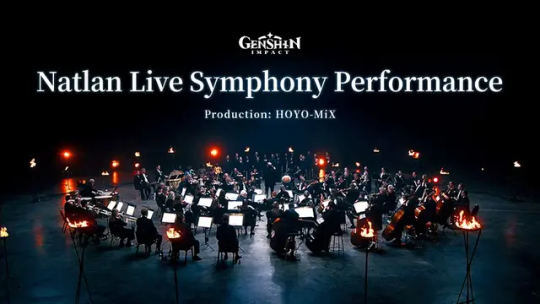
Conducted by Robert Ziegler, the Natlan Live Symphony Performance features the London Symphony Orchestra, London Voices choir, Vocal Shack choir, and top folk musicians performing two game soundtrack pieces produced by HOYO-MiX, "Natlan" and "Anthem of the Savannah."
A big thank you to TAKEOFF Studios for providing collaboration support, and to Stagecast for their support with filming and production.
youtube
#genshin impact#genshin impact updates#genshin impact news#official#genshin impact ost#natlan#dude the choir absolutely killed it#i hope they give the lyrics for all the other tracks with yoruba vocals because there are several of them#Youtube#or is that swahili... i get my african languages mixed up
179 notes
·
View notes
Text
Harry knows a lot of languages, in theory, but he’s only fluent in English like;
He can completely understands Punjabi because that’s the Potters’ native language but he can’t quite grasp speaking it. He picks up French terms of endearments/cuss words from Regulus and Sirius. He knows welsh cuss words as well as philosophical translations because of Remus. He can playfully imitate Italian pick up lines because of Barty. He knows to hide when he hears Swahili because Dorcas only reverts back to it when she’s completely pissed at someone. But everyone around him speaks English the majority of the time, so that’s what he speaks.
Then he gets to Hogwarts and meets Draco Malfoy who can hold a conversation in just about any language someone speaks to him in and fuck, Harry never thought that French was romantic. He’s never seen Punjabi as alluring before. He didn’t consider Italian as attractive.
He spends the summer begging members of his family to teach him more of their languages so he can go back and prove to Draco that he is stupid in more than one language.
#harry potter#james potter#sirius black#regulus black#remus lupin#barty crouch jr#dorcas meadowes#language#desi james potter#desi harry potter#french sirius black#french regulus black#welsh remus#Italian Barty crouch jr#Swahili Dorcas Meadowes#draco malfoy#multilingual#language kink#marauders#marauders raising Harry#bc fuck jkr#headcanon#i can’t stop thinking about it
437 notes
·
View notes
Text

#resident evil 5#resident evil#sheva alomar#tattoo simplified for my sanity (i did not feel like lettering)#did research out of curiosity though and was relieved to find adinkra symbols did originate in ghana/cote d’ivoire#even though the word ‘shujaa’ appears to come from swahili which is not really a west african language#they tried and they also totally didn’t - the story of re5 tbh
86 notes
·
View notes
Text

#Swahili#kiswahili#language#africa#pan africanism#black people#unity#unify#unity is power#seek knowledge#mwenyeji spikes#teach me swahili#love
44 notes
·
View notes
Text
10 random Swahili words I like
Swahili is a major language in Africa, mainly spoken as a first language in Tanzania but common as a second language in much of East Africa. For language learners outside Africa, it is one of the most common native African languages to learn. The word safari comes from Swahili, as well as the word simba for lion. Here are 10 random words I find appealing:
Rabbit: Sungura
Fire-stones: Mafya
Smooth, soft: Laina
Potato: Kiazi
Honey: Asali
Soap: Sabuni
Tomato: Nyanya
Firefly: Kimulimuli
Banana: Ndizi
Chickenpox: Tetewanga
Victory: Ushindi
I double-checked that my sources were accurate, however, you can check if unsure. Like most languages, many words will have more than one meaning or more than one translation, and the spelling of some words might be altered depending on context.
#mine#swahili#linguistics#lingblr#language#language learning#africa#east africa#tanzania#kenya#kiswahili
11 notes
·
View notes
Text
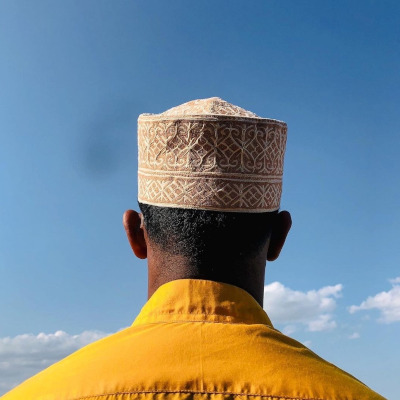
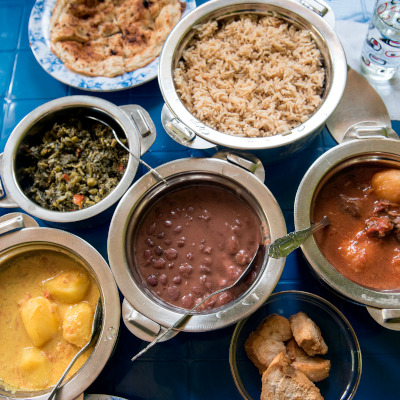
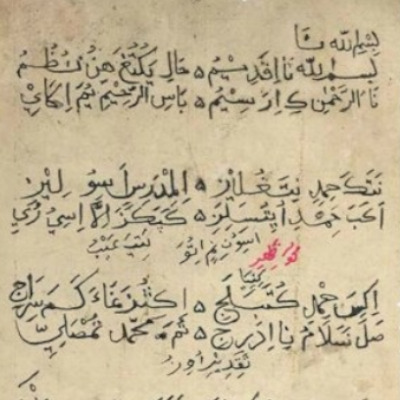
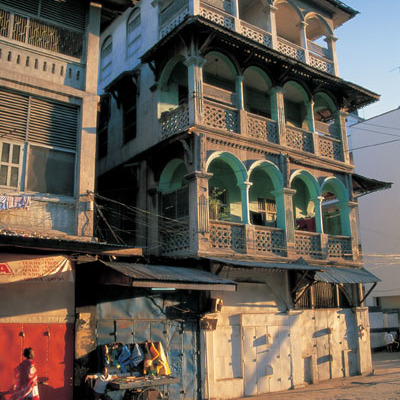
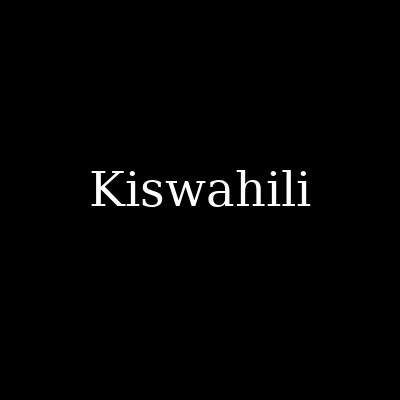
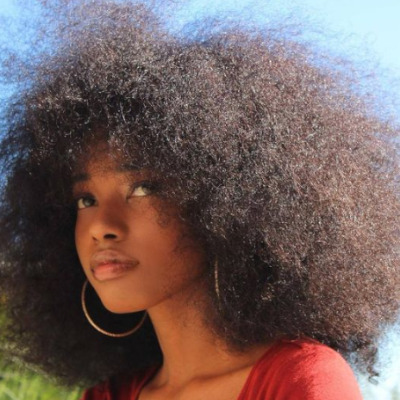

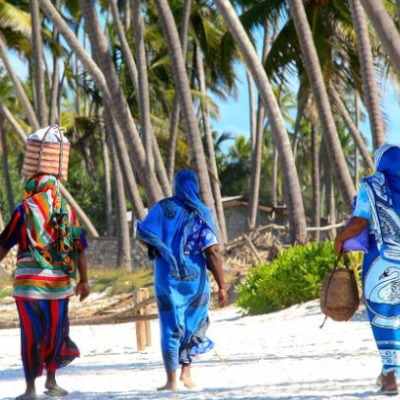
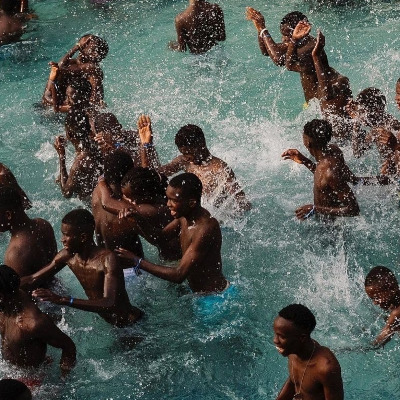
Aesthetic of the languages on earth : Swahili
Swahili is a Bantu language spoken by 80 million people over the African East Coast. It is an official language in Tanzania, Kenya, Rwanda and Uganda. It is a recognized minority language in Burundi, the Democratic Republic of the Congo, and Mozambique.
#swahili#aesthetic#languages#moodboard#language#geography#bantu#tanzania#africa#kenya#rwanda#uganda#burundi#drc#mozambique#atlanticcongo
79 notes
·
View notes
Text
It's speak your language day! I have some fun facts on Kiswahili! Translation under the cut.
Leo hapa Tumblr ni siku ya kuongea lugha yako ya kwanza (inaitwa speak your language day)! Kuisherehekea siku hii, nilitaka ku shiriki nanyinyi nyote semi chache za Kiswahili. Kiswahili ina utajiri nyingi ya mapokeo ya mdomo, na kuna desturi na historia ndefu ya kusimulia mahadithi, kutega vitendawili, n.k.
Kwa mfano, ukitaka kusimulia hadithi, unaanza hivyo:
Msimulizi: Hadithi hadithi!
Hadhira: Hadithi njoo, uongo njoo, utamu kolea!
Msimulizi: Zamani za kale...
Hadithi zinazosimuliwa mara kwa mara ni hadithi za wanyama wa porini: sungura mjanja, mfalme simba, fisi, na kadhalika; hadithi kama hizi zinapatikana katika nchi nyingi za Kiafrika.
Vitendawili ni semi zinazotegwa, na watu wanatakiwa wazifumbulie. Watu wanaoongea Kiswahili kawaida wanajua vitendawili vingi, kwasababu tunazifunza katika shule ya msingi—mi mwenyewe nakumbuka nilipokuwa katika darasa la saba, kabla ya mtihani ya taifa, nilikaa ninakariri vitendawili kama arobaini! Vitendawili vinachekesha na vinachemsha bongo, kwa mfano:
"Askari wangu ni mpole lakini adui wanamhara." (Jibu: paka)
"Tajiri wa rangi." (Jibu: kinyonga)
"Numba yango ina nuguzo mmoja." (Jibu: uyoga)
"Mzungu katoka ulaya no mkono kiunoni." (Jibu: kikombe)
Kwa ukweli mi mwenyewe nimeaanza kusahau vitendawili vingine—lakini zinapatikana ukiGoogle siku hizi!
Kiswahili ni lugha yenye historia, desturi, na vipengele vingi vya kuvutia—siwezi kuziandika zote hapa, lakini kwa mfano, muda ya Kiswahili ("swahili time"), ngeli za nomino, historia ya uandikishi wa Kiswahili (kuanza na harufi za Kiarabu), na ilivyotengenezwa 'lingua franca' katika Tanzania, na lugha ya taifa baada ya uhuru. Natumaini mtafunza kidogo kuhusu lugha ya Kiswahili leo—usiache baada ya kujua 'Hakuna Matata' tu!
(Kama nimokesea sarufi, samahani sana! Siku hizi siandiki kwa Kiswahili kwa kawaida.)
(Translated from Kiswahili/Swahili, with some extra notes)
Today, here on tumblr, is Speak Your Language Day! To celebrate this day, I wanted to share with you a few short sayings in Kiswahili. Kiswahili has a rich variety of oral traditions, and there is a long history and tradition of narrating stories orally, posing vitendawili (common riddles), etc.
For example, it is traditional when one is narrating a story to start like this:
Narrator: A story, a story!
Audience: Story, come! Fiction, come! Make it sweet!
Narrator: Once upon a time...
The common tales that are narrated are folk tales involving wild animals: common characters of the cunning hare (sungura mjanja), the king lion, the hyena—folk tales of similar nature can be found in many African countries.
Vitendawili are short sayings that are posed, and people need to solve/figure them out. People who speak Kiswahili will know many of these, because we learn them in primary school—I remember when I was in Grade 7, before my national exams (standardised tests taken at the end of primary school), I sat and memorised about forty different vitendawili! Vitendawili can both make one laugh, and be mind-bogglers (literal translation: they boil the brain), for example:
"My soldier is so gentle, but the enemies are scared of them."
"The one wealthy in colours."
"My house has only one pillar."
"The white man has come from England with his hand on his waist."
Answers to the vitendawili are at the bottom.
In all honestly I have forgotten a lot of the vitendawili—but these days you can Google and find lists of them easily!
Kiswahili is a language with a rich history, and many fascinating features—I couldn't write them all here, but for example, Swahili time, our many noun classes, the history of writing Kiswahili (there are early Kiswahili writings using the Arabic script), and the way it originated as a lingua franca and how it became the national language and a uniting factor in Tanzania after independence. I hope you'll look up the history of or a little bit of Kiswahili today—it's much more than just the phrase 'Hakuna Matata'!
(My apologies if I've made any grammar mistakes—these days I don't often write in Kiswahili. Also, because I intentionally wanted to write this in Kiswahili first, and then translate it, and I'm not practiced at translation, the English sounds clunky/weird—my apologies, but hey, it's SpYLD, I gotta prioritise the non-English text.)
Answers to the vitendawili:
A cat
A chameleon
A mushroom
A teacup
Some links:
Langfocus' Swahili video, which is a really good primer
The online Kiswahili dictionary I use most
For Kiswahili news, BBC Swahili (both online and you can listen to the radio) is pretty good. There's also many, many Kiswahili language news sites you can find, eg Mwananchi.
And of course, music!
Bongo flava is a genre of Tanzanian music (that originated in Dar es Salaam! Bongoland!)—it's a vibrant genre, it's closely linked to hip-hop and Afrobeats; I have a soft spot for the Bongo Flava of the 00s, so here's Usineseme by Ali Kiba (2009)
Sauti Sol are super well known these days, with good reason! They're awesome! They sing in both Kiswahili and English, but my favourite song of theirs is Nairobi
And in a departure from my usual brand, some patriotic music—this is a remix of the traditional patriotic song Tanzania Tanzania, recorded to encourage people to vote in the 2015 elections. I like it because it's a fun video that captures a lot of different parts of Dar es Salaam.
#this got so much longer than i planned#and translation is hard my god#spyld#speak your language day#kiswahili#swahili#languages#linguistics#home and neighbouring lands#text post#my post#anyway hope you all have enjoyed this journey in which i learn bad i am at translation#and how much specific kiswahili vocab i've forgotten#i can feel my primary school teachers' disappointment
161 notes
·
View notes
Text
the little things i find in linguistics.
(spanish) poo: caca.
(irish) cake: caca.
(swahili) brother: kaka.
#the best way to learn irish is this?#irish#duolingo on crack#duolingo#languages#linguistics#language learning#swahili#spanish
98 notes
·
View notes
Text
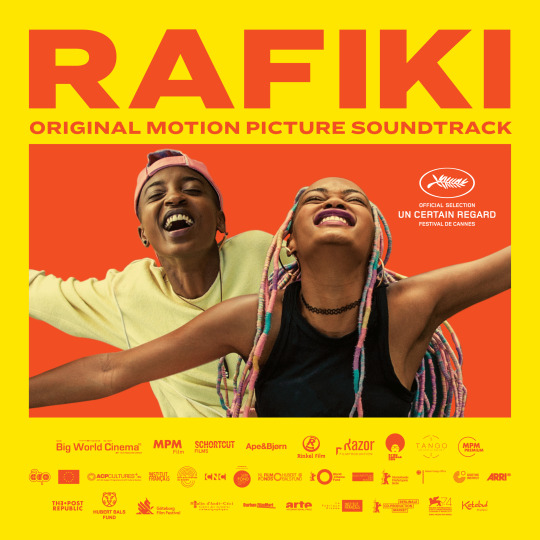
Tracklist:
Suzie Noma • I'm Feeling It • Ignited • Kenyan Message • Nita • Pale Pale • Secret Love • Stay • Heaven
This is the soundtrack to the Kenyan film Rafiki which depicts a lesbian relationship and discusses the discrimination of LGBTQ+ people in Kenya!
Spotify ♪ YouTube
#hyltta-polls#polls#artist: various artists#language: swahili#language: english#decade: 2010s#Kenyan Hip Hop#Kenyan Pop#Kenyan R&B#Kenyan Alternative#artist: muthoni drummer queen#artist: blinky bill#artist: mayonde#artist: mumbi kasumba#artist: njoki karu#artist: jaaz odongo#artist: trina mungai#artist: chemutai sage
17 notes
·
View notes
Text
🇳🇬
Do I have West African followers by chance? I’m curious about what dialect/s I should start with learning that are specific to the region. I was getting a little familiar with Swahili since a lot of diasporans I follow have set up in East or South Africa and I found myself picking up on words and phrases through them — but was sideswept to find out the language isn’t really spoken in the west😅. I’d appreciate Black People’s input on this in general, but if you’re West African or speak any of these yourself and have more personal insight, that’s perfect.
#black tumblr#black twitter#blm#black dialects#black languages#black diasporans#african languages#Hausa#fulani#fulfulde#Igbo#yoruba#black pride#African pride#languageblr#poll#nigeria#west africa#swahili#west Africans#west African culture#nigerian culture#black polyglots#black travelers
15 notes
·
View notes
Text
Picking up speed as I learn swahili and starting to understand Lion King 1994 on a whole other level 🦁🤯

6 notes
·
View notes
Text
me reading how Swahili nouns work: yeah this is pretty simple, I like it
me reading how Swahili verbs work: DDDDDD:
6 notes
·
View notes
Text


the kiti cha enzi (swahili for "chair of power") style of chair reflects both the tradition of decorative chairs being associated with wealth and power in many niger-congo language-speaking societies, as well as the various artistic influences which converged on the swahili coast due to trade. the chairs, only ever made in mombasa and the islands of pate, lamu, and zanzibar, are wooden - mostly ebony - with the seats made of woven string, and inlaid with ivory, bone, and sometimes silver.
the style was first developed in the 15th century. (this particular chair dates to the 19th.) despite the chairs' intricacy, they're also designed to be easy to take apart and carry - an important feature for past swahili rulers and other important figures who were always on the move. wealthy families tended to have at least a few which they'd use to seat important guests while less wealthy families may have owned less decorative versions.
#swahili coast#items#my posts#site doesn't say where this was made so i tagged both. shrug#also i specify language because the like. importance of the chair itself is more pronounced#you'd be surprised at how much similarity language groups carry over despite geographic and historical distances#pretty much every greek/roman god has a hindu counterpart for example
14 notes
·
View notes